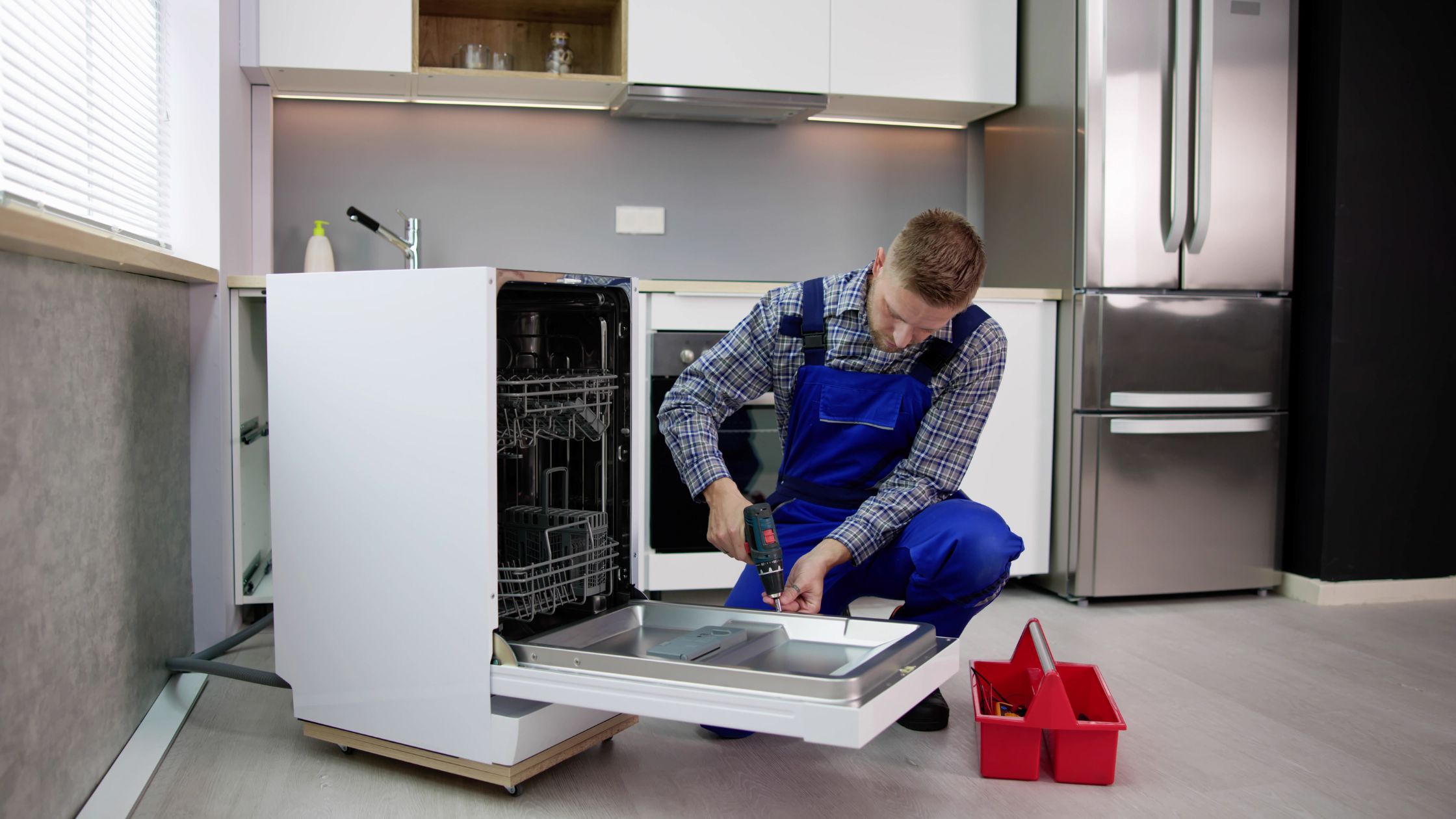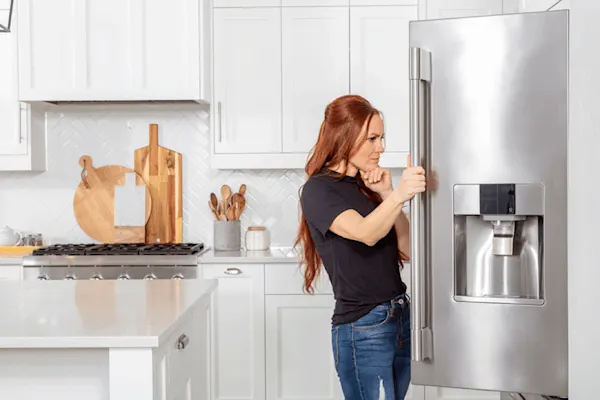Appliance Repair Toolkit – Dryer repair Oro Valley Dependable Refrigeration & Appliance Repair Service
Appliance Repair Toolkit – Dryer repair Oro Valley Dependable Refrigeration & Appliance Repair Service
Blog Article
The Ultimate Guide to Comprehending Appliance Repair Work in the house
When your refrigerator quits cooling or your oven declines to heat, it can really feel frustrating. Comprehending appliance fixing in your home can save you money and time. You'll learn to recognize symptoms, use necessary tools, and comply with an organized troubleshooting process. Yet prior to you start, there are important security preventative measures you need to consider. What are the most common issues, and just how can you repair them? Let's discover the essentials.
Typical Home Appliance Issues and Their Symptoms
When your devices begin breaking down, it's vital to identify the indicators beforehand. Ignoring them can lead to larger concerns and expensive repair services. If your refrigerator isn't cooling down properly, you may observe warm spots or condensation creating. This might indicate a stopping working compressor or an obstructed vent.Your dishwasher may reveal troubles with dirty dishes or uncommon noises throughout cycles. If you listen to grinding or clanking, it's time to investigate.A washing machine that won't rotate or drain can leave you with soaked laundry, suggesting a clogged drainpipe or a malfunctioning pump.Lastly, if your stove's temperature level seems off or it takes forever to preheat, you may be handling a faulty thermostat. By staying sharp to these symptoms, you can attend to problems prior to they intensify into major fixings.
Crucial Tools for Home Appliance Repair Work
When you're dealing with device fixings in the house, having the right tools is essential. Standard hand devices like screwdrivers and pliers will aid you take apart and repair various home appliances, while electric testing devices assure you're working securely with circuitry. Allow's look at what you require to start on your repair work trip.
Standard Hand Tools
Having the right devices is important for effective appliance repair at home. Start with a reputable screwdriver collection, including both flathead and Phillips kinds, as screws prevail in device assembly. Pliers are also vital; they aid with gripping, turning, and cutting cords or little parts. A set of needle-nose pliers can reach difficult situations easily. You'll require a great flexible wrench for tightening or loosening nuts and screws. An utility blade comes in handy for puncturing product packaging or insulation. Do not forget a strong workbench or surface area to safely organize your tools and components. With these standard hand devices, you'll be well-prepared to tackle most home appliance repairs that come your means.
Electrical Screening Devices
Along with basic hand tools, electric screening tools play a necessary role in home appliance repair service. These devices help you identify electrical issues and warranty home appliances function securely. A multimeter is vital; it gauges voltage, current, and resistance, permitting you to determine issues promptly. A non-contact voltage tester is one more must-have, letting you spot online cables without making straight call, boosting your safety and security. Secure meters are wonderful for gauging existing circulation in wires without detaching them, conserving you time and effort. Additionally, circuit testers can quickly check if outlets are operating properly. By using these devices, you'll enhance your troubleshooting procedure and boost your fixing skills, making appliance maintenance a lot much easier.
Step-by-Step Guide to Diagnosing Device Issues
When your appliance acts up, it can be irritating, but detecting the issue does not need to be frustrating. You'll discover to identify usual troubles and use reliable fixing methods. Let's stroll through the steps to obtain your appliance back in functioning order.
Typical Home Appliance Issues

Repairing Methods Explained

Repairing Major Kitchen Area Appliances: A Closer Look
Have you ever before asked yourself how to deal with usual problems with your cooking area home appliances? Repairing major kitchen area home appliances like fridges, stoves, and dishwashing machines can be less complicated than you assume. Beginning by determining the problem-- whether it's a refrigerator not cooling down or a stove that won't warm. Frequently, a simple reset or inspecting the source of power can solve the issue.For fridges, clean the condenser coils and check the door seals. If your stove's not home heating, inspect the burner and thermostat. Dishwashing machines could just require a tidy filter or a reset to get them back in activity. Always disconnect the appliance before diving right into fixings to assure your safety.Don' t fail to remember to seek advice from the individual guidebook for specific repairing suggestions associated with your model. With a little bit of patience and the right tools, you can confidently take on home appliance fixings and conserve cash at the same time!

Fixing Laundry Equipments: Tips and Techniques
When your laundry devices begin acting up, it can really feel overwhelming, yet fixing them doesn't have to be an inconvenience. Begin by checking the power supply. Confirm the device is connected in and the electrical outlet is functioning. Next, evaluate the door or lid switch; a damaged button can protect against the equipment from operating.For washers, if it's not spinning, look for out of balance lots. Rearranging the clothing may solve the concern. If your dryer isn't heating, clean the lint filter and examine the air vent for blockages.Listen for unusual sounds; they can suggest an issue. If your home appliance is dripping, inspect the hoses for splits or loosened connections. Document any kind of mistake codes displayed on electronic screens, as they can direct you in identifying the issue. Lastly, consult the customer guidebook for particular troubleshooting pointers associated with your design.
Safety Precautions to Take Throughout Repair works
Before you start any kind of device repair work, it's vital to prioritize safety to prevent mishaps or injuries. Disconnect the device or turn off the circuit breaker to guarantee no power reaches it while you function. Usage insulated devices to reduce the threat of electric shock. Put on safety and security goggles and handwear covers to shield yourself from sharp edges or debris (Kenmore check here Dryer Repair Oro Valley Dependable Refrigeration & Appliance Repair Service).Make specific your work area is neat and well-lit, so you can see what you're doing. Maintain kids and family pets away from the location to stay clear of distractions and prospective hazards. If you're managing gas home appliances, be additional mindful; check for leakages before proceeding.Take your time, and do not hurry via repairs. If you feel unclear concerning any step, it's far better to stop and research than to guess. Complying with these safety measures will certainly assist create a more secure atmosphere for your DIY device repair project
When to Call a Specialist for Help
How do you understand if it's time to employ a specialist for home appliance repair services? If you've tried basic troubleshooting without success, it's a clear sign. As an example, if your appliance still will not begin or reveals uncommon sounds after resetting it, don't hesitate to seek expert help.When you notice leaks, smoke, or melting scents, focus on safety and security and call a professional quickly. These concerns can cause more considerable damage or posture threats to your home.Also, if your device is under service warranty, speaking to an expert is frequently the ideal route. They can ensure that repairs will not invalidate your service warranty, conserving you money in the lengthy run.Finally, if you're not sure or uneasy with intricate repairs, it's wise to leave it to the professionals. Remember, tackling complicated issues without the ideal competence can bring about pricey blunders. Trust a specialist when unsure!
Often Asked Inquiries
How Can I Stop Appliance Troubles in the Future?
To stop device troubles in the future, you must perform regular upkeep, check for wear and tear, tidy filters, and avoid overloading. Remaining aggressive will assist prolong their life-span and maintain them running efficiently.
What Are one of the most Common DIY Home Appliance Repair Work Mistakes?
You may ignore safety preventative measures, skip troubleshooting actions, or make use of incorrect devices when attempting DIY device repairs. Rushing the procedure or disregarding producer standards can result in more considerable problems and costly blunders. Keep patient and notified!
How Do I Know if a Part Demands Substitute?
You can tell if a part needs replacement by inspecting for unusual noises, leakages, or inconsistent performance. If the home appliance struggles to run properly or reveals noticeable damages, it's most likely time for a substitute.
Can I Use Generic Components for Appliance Services?
Yes, you can make use of generic parts for device repair work, yet ascertain they work - Maytag Washing machine repair Dependable Refrigeration & Appliance Repair Service. Generic components may save you cash, however they could affect performance or durability, so consider your choices very carefully prior to deciding
What Service Warranties Cover Appliance Repair Works?
Most device service warranties cover repairs for manufacturing defects, yet they typically leave out damages from misuse. Inspect your warranty terms very carefully, as some could need making use of qualified service technicians and original components for insurance coverage to stay legitimate.
Report this page